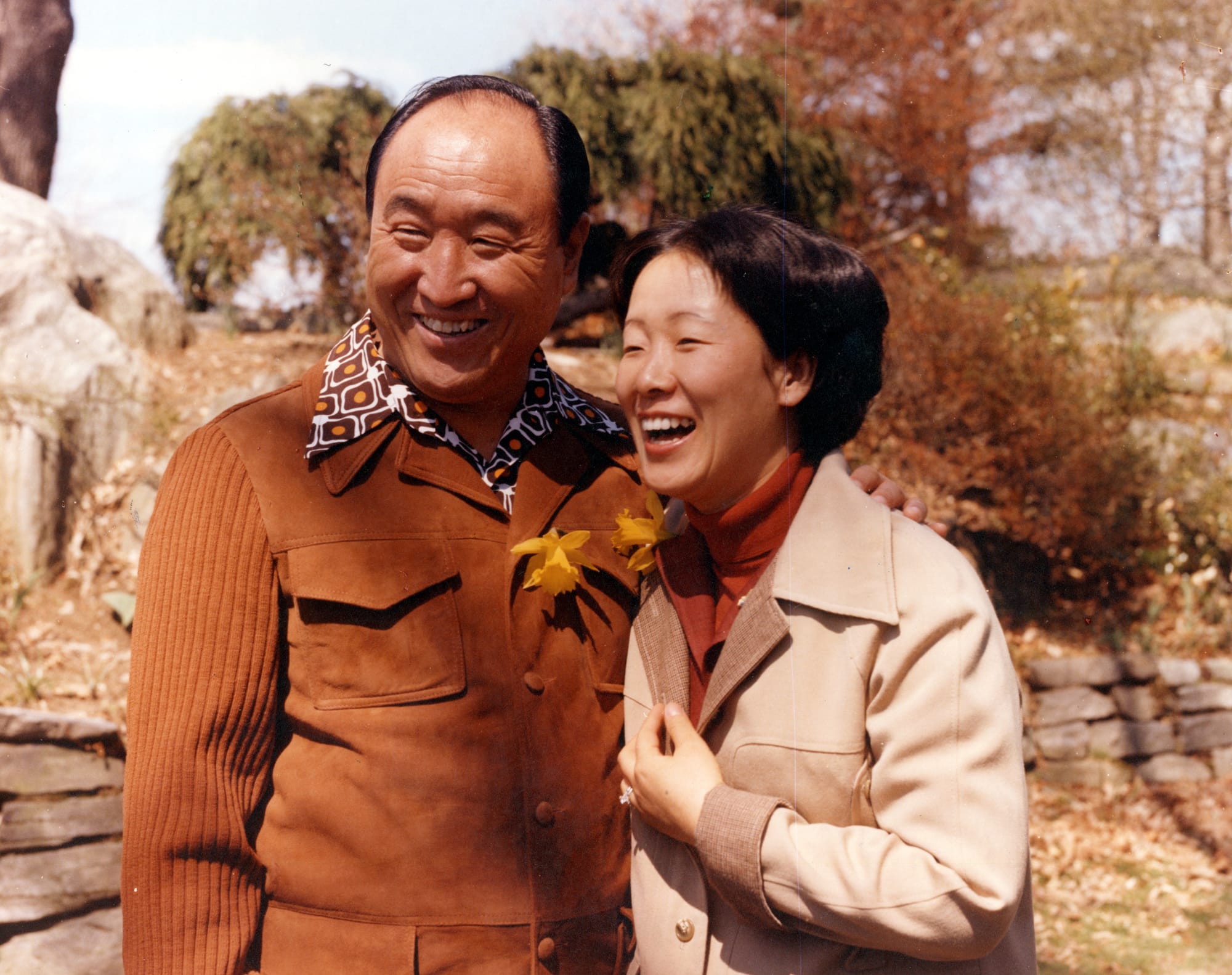Women of great faith and devotion have played central roles in the advancement of God’s providence. From the Mothers of Israel to the significant women in Jesus’ life, the Bible records the lives of women who made great efforts for God’s will, often at considerable personal cost.
A woman’s life in olden times was not easy, and these women all struggled through particularly trying circumstances while maintaining strong faith in God. To support her husband Abraham, Sarah endured great hardships and even risked being taken into Pharaoh’s harem.
Bathsheba was taken by King David, who also killed her husband, yet she swallowed her pain with the attitude that she should honor her dead husband by being loyal to her king. Rebecca, on the other hand, went against her husband to support her son Jacob because she knew he was chosen to carry on the divine will. Rachel and Leah struggled with a female sibling rivalry that paralleled that between Jacob and Esau.
Tamar and Mary each risked their lives to bear out of wedlock the children God desired. Mary Magdalene showed exemplary devotion to Jesus, superior even to that of the twelve apostles.
Father Moon hints of her intimacy with Jesus and her destiny—were it not for the crucifixion—to become Jesus’ bride. Father Moon sees a thread running through the lives of all these outstanding women: they were chosen in God’s providence to prepare God’s true lineage.
Therefore, He had them develop great faith, and then placed them in circumstances which challenged them to restore the mistakes of the first woman, Eve.
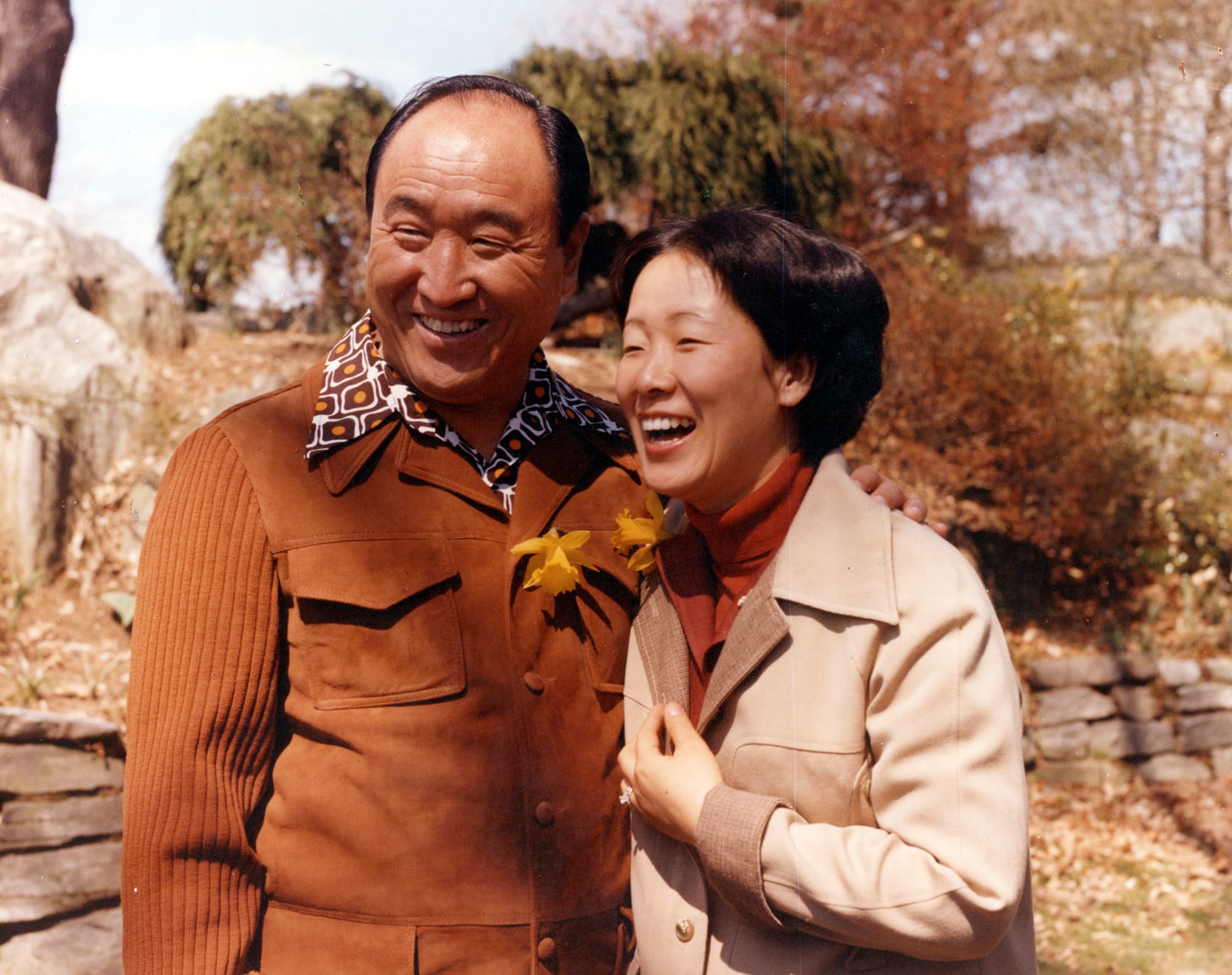
Sarah
Now there was a famine in the land. So Abram went down to Egypt to sojourn there, for the famine was severe in the land. When he was about to enter Egypt, he said to Sarai his wife, “I know that you are a woman beautiful to behold; and when the Egyptians see you, they will say, ‘This is his wife’; then they will kill me, but they will let you live. Say you are my sister, that it may go well with me because of you, and that my life may be spared on your account.”
When Abram entered Egypt the Egyptians saw that the woman was very beautiful. And when the princes of Pharaoh saw her, they praised her to Pharaoh. And the woman was taken into Pharaoh’s house.
And for her sake, he dealt well with Abram; and he had sheep, oxen, he asses, menservants, maid servants, she asses, and camels. But the Lord afflicted Pharaoh and his house with great plagues because of Sarai, Abram’s wife. So Pharaoh called Abram, and said, “What is this you have done to me?
Why did you not tell me that she was your wife? Why did you say, ‘She is my sister,’ so that I took her for my wife? Now then, here is your wife, take her, and be gone.” And Pharaoh gave men orders concerning him; and they set him on the way, with his wife and all that he had. Genesis 12.10-20
Teachings of Sun Myung Moon
What did Sarah think when Abraham suggested that when they went before Pharaoh, they should be introduced as brother and sister? Not long before, she had hurriedly fled their homeland at her husband’s urging.
She could have thought, “What a husband! He dragged me away from a comfortable home to this foreign land, and he now does not even want me to call him my husband, but my brother!” They had been journeying for months, and she rarely had to bathe.
Living like gypsies, she could not always count on a meal. They had been wandering here today and there tomorrow. Thinking of her difficult life, Sarah could have felt, “What a lousy husband! He has only brought me misfortune morning, day, and night. And now he asks me to call him my elder brother, not my husband…”
Despite such ordeals, Sarah maintained a hopeful heart and united with her husband. They did not fight during their long journey. Besides every great man, there must be a great woman.
Since she was such a great wife to Abraham, if he were ever to take her for granted and try to strike her, God would have been angry with him. (49:144, October 9, 1971)
What was better about Abraham than Noah? Abraham’s wife, Sarah, obeyed Abraham when he asked her to pose as his sister. Noah’s wife, on the other hand, opposed Noah when he asked her to support him in doing something beyond common sense.
From this perspective, Abraham’s wife was better than Noah’s wife. Noah’s family members opposed Noah. His son Ham treated his father with contempt because his mother, who raised him, was filled with complaints against her husband.
Isaac, on the other hand, was raised in the bosom of his mother Sarah, who was united with her husband Abraham; hence, he willingly obeyed his father even in a situation where he was to be killed. Sarah is the reason why Abraham’s family was better than Noah’s family. (46:322, August 17, 1971)
Without knowing it, Abraham walked this providential course to restore the positions in Adam’s family. When the Archangel took Eve—capturing under his dominion all of Eve’s descendants and the natural world—Adam and Eve were still brother and sister.
For Abraham to make the indemnity condition to restore this, he was deprived of Sarah, who was playing the role of his sister, by Pharaoh, who represented Satan.
He then had to take her back from Pharaoh as his wife, together with Lot as the representative of all humanity, and wealth symbolizing the natural world.
The course that Abraham walked was a model course for Jesus to walk in his day.26 (Exposition of the Divine Principle, Foundation 3.1.2.1)
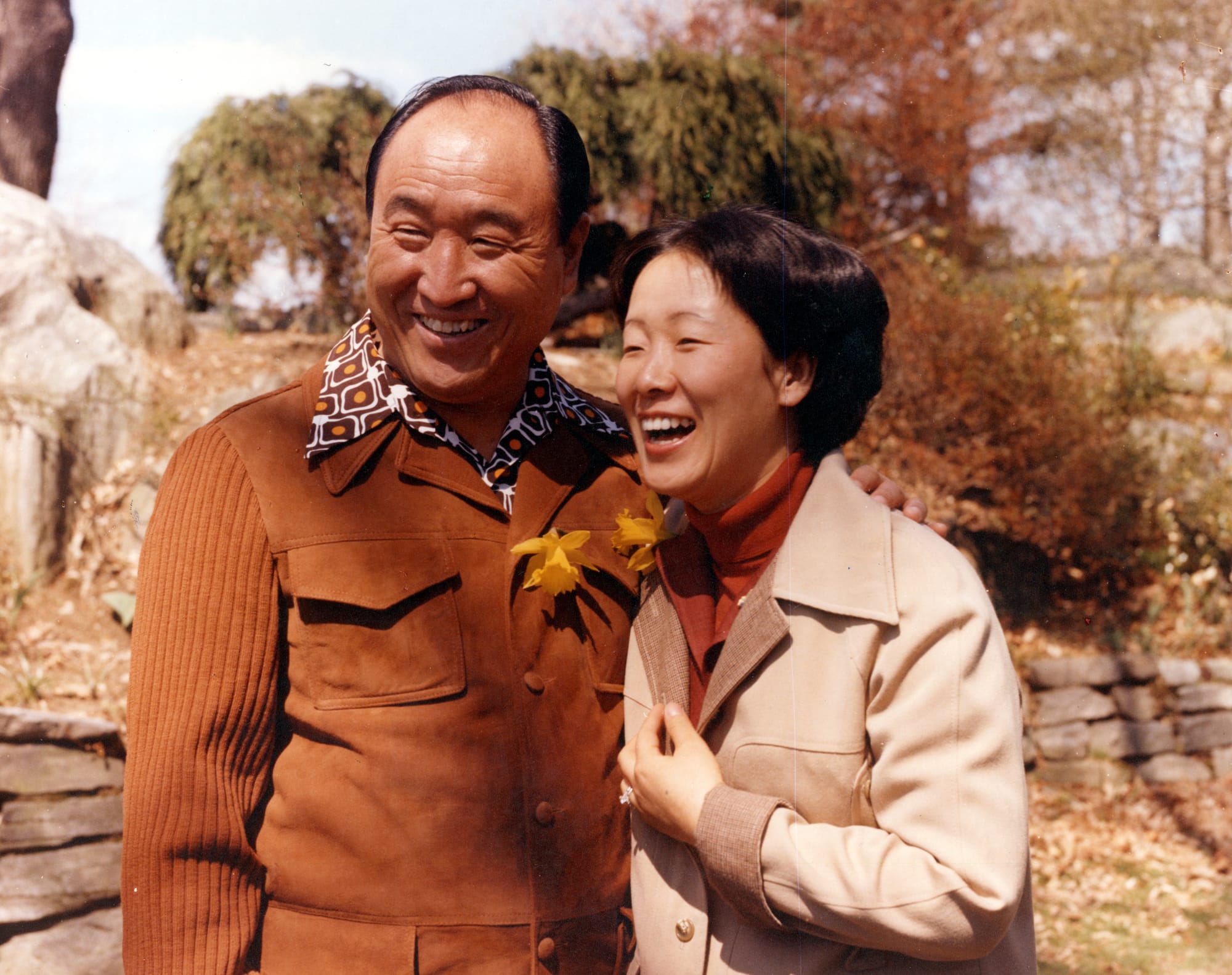
Rebecca
Now Rebecca was listening when Isaac spoke to his son Esau. So when Esau went to the field to hunt for game and bring it, Rebecca said to her son Jacob, “I heard your father speak to your brother Esau, ‘Bring me game, and prepare for me savory food, that I may eat it, and bless you before the Lord before I die.’ Now therefore, my son, obey my word as I command you. Go to the flock, and fetch me two good kids, that I may prepare from them savory food for your father, such as he loves; and you shall bring it to your father to eat, so that he may bless you before he dies.” But Jacob said to Rebecca his mother, “Behold, my brother Esau is a hairy man, and I am a smooth man. Perhaps my father will feel me, and I shall seem to be mocking him, and bring a curse upon myself and not a blessing.” His mother said to him, “Upon me be your curse, my son; only obey my word, and go, fetch them to me.” Genesis 27.5-13
Now Esau hated Jacob because of the blessing with which his father had blessed him, and Esau said to himself, “The days of mourning for my father are approaching; then I will kill my brother Jacob.” But the words of Esau her older son were told to Rebecca; so she sent and called Jacob, her younger son, and said to him, “Behold, your brother Esau comforts himself by planning to kill you. Now therefore, my son, obey my voice; arise, flee to Laban my brother in Haran, and stay with him a while, until your brother’s fury turns away; until your brother’s anger turns away, and he forgets what you have done to him; then I will send, and fetch you from there. Why should I be bereft of you both in one day?” Then Rebecca said to Isaac, “I am weary of my life because of the Hittite women. If Jacob marries one of the Hittite women such as these, one of the women of the land, what good will my life be to me?” Then Isaac called Jacob and blessed him, and charged him, “You shall not marry one of the Canaanite women. Arise, go to Paddan-aram to the house of Bethuel your mother’s father; and take as wife from there one of the daughters of Laban your mother’s brother. Genesis 27.41-28.2
Teachings of Sun Myung Moon
From time to time, in human history, a woman appears who initiates a great revolution to find the path of God’s love.
She leads her people to offer their lives, possessions, attachments to cultural tradition, and such, for God’s sake.
Rebecca, Jacob’s mother, was one such woman. Due to her efforts, Jacob could be victorious and receive the name “Israel.” It was Rebecca who inspired him to claim the birthright of the elder son and then guided him to receive the blessing from his father, Isaac.
What Rebecca did was to unite with her younger son, Jacob. On his behalf, she deceived her husband and her eldest son, thus enabling him to fulfill the will of God. In doing this, she was an exceptional woman. Have you ever heard of someone trying to steal the birthright from his elder brother?
From a conventional viewpoint, Jacob’s mother was a liar, and Jacob was a swindler. The Bible records these things clearly, as well as the fact that God approved of them. This has been a puzzle for Bible students.
This world belongs to Satan; therefore, for God to bless His sons and daughters with the birthright of the elder son requires that they make a condition to restore the world from Satan’s realm.
Do you think anyone can persuade Satan to surrender his rights by reasoned arguments? No. Satan originally stole this world through deceit…
In restoration, God’s central figures can do to Satan exactly what he did to them; that is how God can take back all that Satan had stolen. A woman who unites with God should be the one to take the initiative.
The Fall happened when a woman (Eve) united with Satan. Then, together, they took the man (Adam). Therefore, a woman should unite with God and bring the man back. Rebecca took on that role.
First, she should pull Jacob to God’s side; then, together, er they should pull her husband and [eldest] son. From this perspective, we can recognize the rightness of their actions. (105:118-20, October 4, 1979)
In Jacob’s family, as long as Esau continued to hold resentment against Jacob [for taking his father’s blessing], the family could not be united and stand before God.
Therefore, Esau and his father had to be brought to a voluntary surrender.
They should reach the point where they would genuinely praise Rebecca; until that day, the family could not return to a position acceptable to God. Rebecca served them devotedly and apologized with tears, “I am sorry; it is my fault.”
Yet even if Isaac and Esau forgave her, would even thousands of apologies be enough to calm their hearts towards Jacob when he appeared before them? They had to submit to Jacob freely, of their own will.
There would be no restoration unless Esau (in the position of Cain) and Isaac (in the position of Satan) yield to Jacob (in the position of Abel), saying, “Jacob, you were right to claim the birthright. I will accept you.”
Jacob worked hard for that, of course, but his mother worked even harder—hundreds of times harder. She worked hard to change their attitudes, making sure they pledged repeatedly not to kill Jacob. How much rested upon Rebecca! She fulfilled a vital mission to make the restoration possible. (244:240-41, February 14, 1993)
A woman, Eve, fell by uniting with the archangel. She denied her father, God, and Adam, her intended husband. Therefore, women, be on your guard! You should expect to take the lead in the course of restoration; you will go first on this path ahead of the men.
Women must rise who can face down opposition from their fathers and their husbands in the satanic world. Unless you can be steadfast, the men in your life cannot return to the original world.
Religions have been developing through this formula; they are in the role of the bride. Hence, in general, women are more fervent in religious persuasion while men are more worldly.
Whenever faithful women seek God, they are bound to face opposition from both Satan and the men in their lives. (89:208, November 22, 1976)
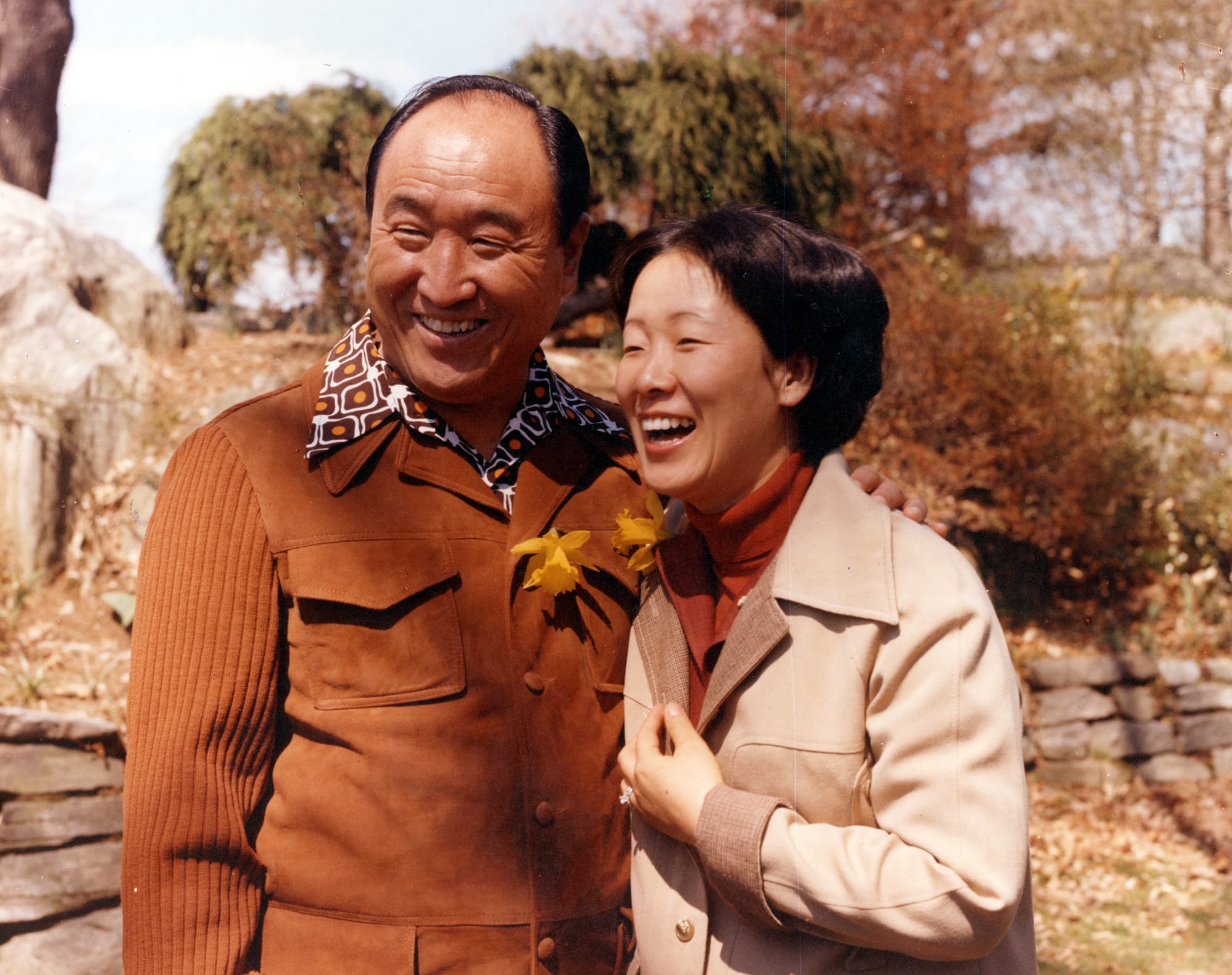
Rachel and Leah
Now Laban had two daughters; the name of the older was Leah, and the name of the younger was Rachel. Leah’s eyes were weak, but Rachel was beautiful and lovely. Jacob loved Rachel… more than Leah… When the Lord saw that Leah was hated, he opened her womb; but Rachel was barren. And Leah conceived and bore a son, and she called his name Reuben; for she said, “Because the Lord has looked upon my affliction; surely now my husband will love me.” She conceived again and bore a son, and said, “Because the Lord has heard that I am hated, he has given me this son also”; and she called his name Simeon. Again she conceived and bore a son, and said, “Now this time my husband will be joined to me, because I have borne him three sons”; therefore his name was called Levi. And she conceived again and bore a son, and said, “This time I will praise the Lord “; therefore she called his name Judah; then she ceased bearing. When Rachel saw that she bore Jacob no children, she envied her sister; and she said to Jacob, “Give me children, or I shall die!” Jacob’s anger was kindled against Rachel, and he said, “Am I in the place of God, who has withheld from you the fruit of the womb?” Then she said, “Here is my maid Bilhah; go in to her, that she may bear upon my knees, and even I may have children through her.” So she gave him her maid Bilhah as a wife; and Jacob went in to her. And Bilhah conceived and bore Jacob a son. Then Rachel said, “God has judged me, and has also heard my voice and given me a son”; therefore she called his name Dan. Rachel’s maid Bilhah conceived again and bore Jacob a second son.
Then Rachel said, “With mighty wrestlings I have wrestled with my sister, and have prevailed.”… In the days of wheat harvest Reuben went and found mandrakes in the field, and brought them to his mother Leah. Then Rachel said to Leah, “Give me, I pray, some of your son’s mandrakes.” But she said to her, “Is it a small matter that you have taken away my husband? Would you take away my son’s mandrakes also?” Rachel said, “Then he may lie with you tonight for your son’s mandrakes.”
When Jacob came from the field in the evening, Leah went out to meet him, and said, “You must come in to me; for I have hired you with my son’s mandrakes.” So he lay with her that night. And God hearkened to Leah, and she conceived and bore Jacob a fifth son.
Leah said, “God has given me my hire because I gave my maid to my husband”; so she called his name Issachar. And Leah conceived again, and she bore Jacob a sixth son.
Then Leah said, “God has endowed me with a good dowry; now my husband will honor me, because I have borne him six sons”; so she called his name Zebulun. Afterwards she bore a daughter, and called her name Dinah.
Then God remembered Rachel, and God hearkened to her and opened her womb. She conceived and bore a son, and said, “God has taken away my reproach”; and she called his name Joseph, saying, “May the Lord add to me another son!” Genesis 29.30-35; 30.1-24
Teachings of Sun Myung Moon
For the first seven years, Jacob worked hard to gain the hand of Rachel, but Laban gave him Leah instead.
We see that the intent of God was to have Jacob fulfill Adam’s mission for restoration. To reverse the process of the Fall, he should first go through Leah (on Satan’s side), and then he could embrace Rachel.27 In the world, there are two types of women.
One type is a fallen woman, and the other is a woman in the restored position. Leah plundered, as it were, her younger sister’s position. Laban, who represented Satan in this, blocked Rachel’s way in the providence of salvation by favoring Leah. Jacob tried to work it out, but the problem was that these two women were fighting each other over Jacob’s love.
It was a replica of the situation in Adam’s family, where Cain and Abel fought each other over God’s love. Rachel, like Abel, was trying to follow the purpose of God. At the same time, Satan interfered through Leah to promote his Cain-like self-centered love.
Satan tried to seize the leading role in love, and in so doing tried to destroy God’s ideal… She did not know at that time, but Rebecca, as the mother, was supposed to work with Jacob’s wives.28 She was to persuade Leah to submit to Rachel, so the wives could unite with Jacob’s heart.
We can now see how difficult it was for her at that time; this was in addition to her mission to lift up Jacob in the position of Abel and enable him to appease Esau in the position of Cain, as well as to win over Isaac. It was Rachel’s position, not Leah’s, which had to be upheld, and in that way, Jacob, Rachel, and Leah could be united as one.
The elder sister should naturally submit to the younger. It is completely analogous to the relationship between the brothers Esau and Jacob, where the elder should surrender to the younger one hundred percent and honor the younger as though he were the elder.
Likewise, for restoration to occur, the positions of Leah and Rachel as elder and younger sisters should be reversed. (244:239-40, February 14, 1993)
Among American women, are there any who are truly happy? Many are entangled in a relationship between Leah (the legal wife) and Rachel (the mistress). Some even go beyond that, to the point of practicing a life of free sex under the pretext of equality. Yet their actions are often rooted in jealousy…
During their struggle over love, Leah and her maids gave birth to ten sons, while Rachel had two.29 This became the division between the northern kingdom of Israel and the southern kingdom of Judah—between ten tribes and two tribes—in the position of Cain and Abel.
Thus, the struggle for love within Jacob’s family ultimately led to a divided nation and the wars between them. (244:248 49, February 14, 1993)
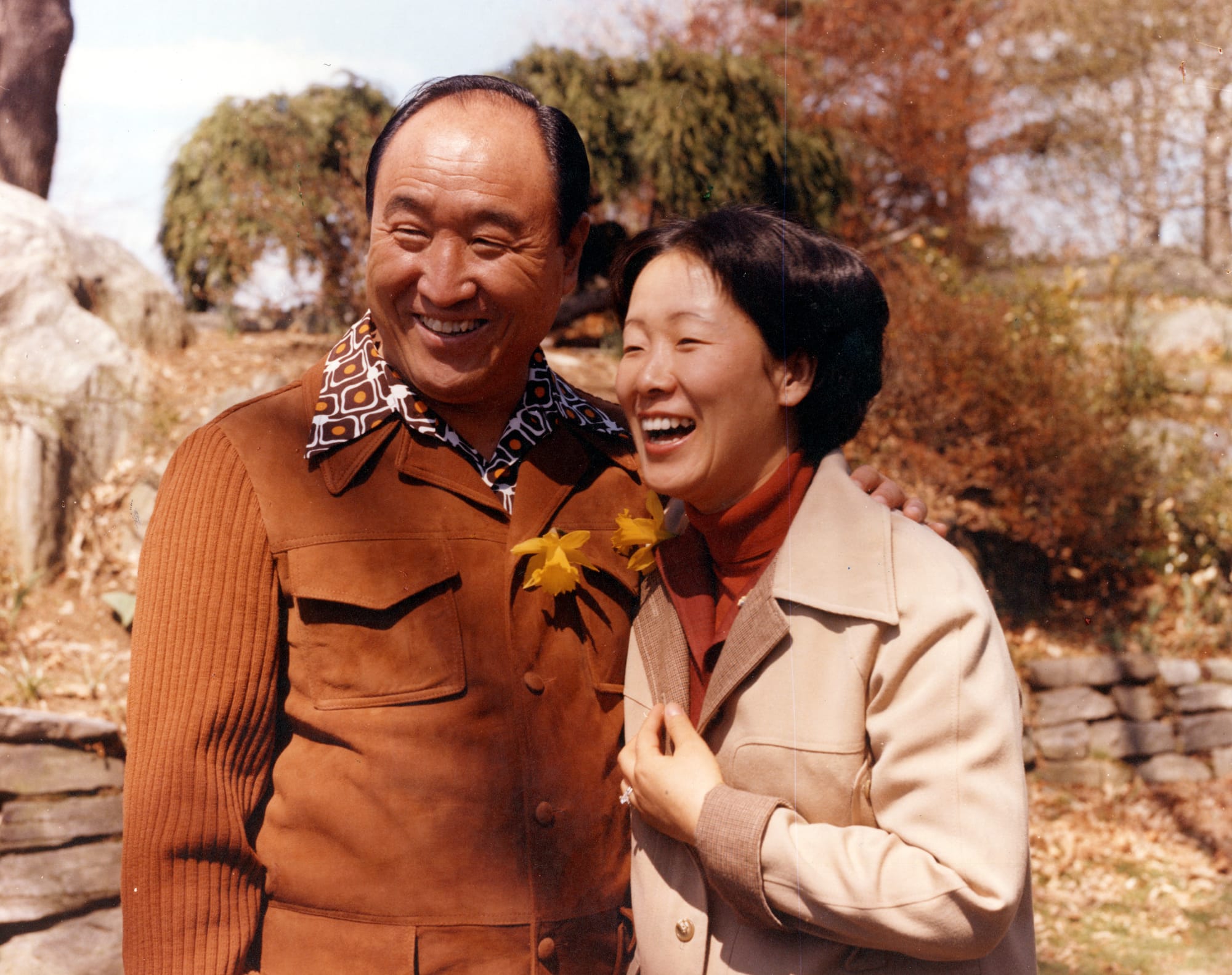
Tamar
Judah took a wife for Er his firstborn, and her name was Tamar. But Er, Judah’s firstborn, was wicked in the sight of the Lord, and the Lord slew him. Then Judah said to Onan, “Go in to your brother’s wife, and perform the duty of a brother-in-law to her, and raise up offspring for your brother.”
But Onan knew that the offspring would not be his; so when he went in to his brother’s wife he spilled the semen on the ground, lest he should give offspring to his brother.30 And what he did was displeasing in the sight of the Lord, and he slew him also.
Then Judah said to Tamar his daughter-in-law, “Remain a widow in your father’s house, till Shelah my son grows up”—for he feared that he would die, like his brothers. So Tamar went and dwelt in her father’s house.
In course of time the wife of Judah, Shua’s daughter, died; and when Judah was comforted, he went up to Timnah to his sheepshearers, he and his friend Hirah the Adullamite. And when Tamar was told, “Your father-in-law is going up to Timnah to shear his sheep,” she put off her widow’s garments, and put on a veil, wrapping herself up, and sat at the entrance to Enaim, which is on the road to Timnah; for she saw that Shelah was grown up, and she had not been given to him in marriage.
When Judah saw her, he thought her to be a harlot, for she had covered her face. He went over to her at the roadside, and said, “Come, let me come in to you,” for he did not know that she was his daughter-in-law. She said, “What will you give me, that you may come in to me?” He answered, “I will send you a kid from the flock.” And she said, “Will you give me a pledge, till you send it?” He said, “What pledge shall I give you?” She replied, “Your signet and your cord, and your staff that is in your hand.” So he gave them to her, and went in to her, and she conceived by him. Then she arose and went away, and taking off her veil she put on the garments of her widowhood… About three months later Judah was told, “Tamar your daughter-in-law has played the harlot; and moreover she is with child by harlotry.” And Judah said, “Bring her out, and let her be burned.” As she was being brought out, she sent word to her father-in-law, “By the man to whom these belong, I am with child.” And she said, “Mark, I pray you, whose these are, the signet and the cord and the staff.” Then Judah acknowledged them and said, “She is more righteous than I, inasmuch as I did not give her to my son Shelah.” And he did not lie with her again. When the time of her delivery came, there were twins in her womb. And when she was in labor, one put out a hand; and the midwife took and bound on his hand a scarlet thread, saying, “This came out first.” But as he drew back his hand, behold, his brother came out; and she said, “What a breach you have made for yourself!” Therefore his name was called Perez. Afterward his brother came out with the scarlet thread upon his hand; and his name was called Zerah. Genesis 38.6-30
Tamar was the daughter of a priest, and it can hardly be imagined that she set out with the intention of committing incest with her father-in-law, since she was by nature chaste and modest. She was indeed virtuous and did not prostitute herself, and it was out of her deeper knowledge and wisdom that she approached Judah, and a desire to act kindly and faithfully (towards the dead). And it was because her act was based on a deeper knowledge that God aided her and she straightaway conceived… There were two women from whom the seed of Judah was to be built up, from were to descend King David, King Solomon and the Messiah, viz. Tamar and Ruth. These two women had much in common. Both lost their first husbands, and both took similar steps to replace them. Tamar enticed Judah because he was next-of-kin to her sons who had died… Ruth similarly enticed Boaz, as it says, “she uncovered his feet and laid her down,” (Ruth 3:7)…
From these two women, then the seed of Judah was built up and brought to completion, and both of them acted piously, and had for their aim to do kindness toward the dead, for the proper establishment of the world subsequently. Zohar 1.188a-b (Judaism)
Teachings of Sun Myung Moon
Tamar was one example of how God’s lineage developed through women with an unusual path of life. Why would God use women of questionable morals in the dispensation?
Ordinary women who offer their bodies in love, as Eve did, belong to Satan and are 100 percent on Satan’s side. Women on God’s side must go the opposite way.
Hence, God needed women who could deny love on Satan’s side and [offer their bodies] to return to God.
Since Tamar met this criterion, God selected her and worked through her to fulfill the providence. What exactly did Tamar do? She was a righteous woman who was willing to take on the role of a sinner as she strived to fulfill God’s will.
As Eve lied to God and her husband-to-be at the time of the Fall, Tamar deceived her father-in-law and her husband-to-be, the third son of Judah. Tamar did precisely what Eve did, risking her life, but she did it for God’s will. (92:286-88, April 18, 1977)
I am sure Tamar prayed like this, “O Lord God, I miss the realm of Thy blessing. I am doing this to continue Thy blessed lineage, so God, please forgive me. Even though I may die tens of thousands of times, if only I can continue the blessed lineage of Judah through this immoral act, I have no regret.”
With that desperate heart, Tamar did not mind facing even death to fulfill God’s Will and resolve His grief. Tamar’s filial piety and obedience to God’s will were truly amazing.
Yet it was painful for God to have to work His providence of restoration through this kind of complicated situation. (110:222-23, November 18, 1980)
Satan sowed the seed of false love within the womb of Eve, which gave birth to evil life. Therefore, God needed to purify a mother’s womb from which the heavenly Son could be born. Despite Jacob’s victory in winning over Esau, the forty years from their birth to their reconciliation remained separated from Satan.
The great mother who assumed the responsibility to meet this condition was Tamar. Tamar had the single-minded conviction that she would carry on the lineage of the chosen people.
To that end, she disguised herself as a prostitute and slept with her father-in-law, Judah, and became pregnant with twins. At the time of birth, one of the twin sons, Zerah, stretched out his hand from the womb to be born first.
But he was pulled back into the womb, and the second son, Perez, was born first, taking the position of the elder brother. Thus, within the womb of Tamar, the first and second sons fought, and their reversal of position separated them from Satan. This became the condition for restoration in the womb.
Upon this condition, the Messiah could be conceived within the blood lineage of the chosen people, based on the nation of Israel that could stand up to the Roman Empire two thousand years later.
The victorious foundation on the national level could then be formed in the womb of a mother free of satanic accusation, prepared for the seed of the Son of God. On this foundation, the holy mother Mary emerged in the mainstream of God’s providence. (277:205-06, April 16, 1966)
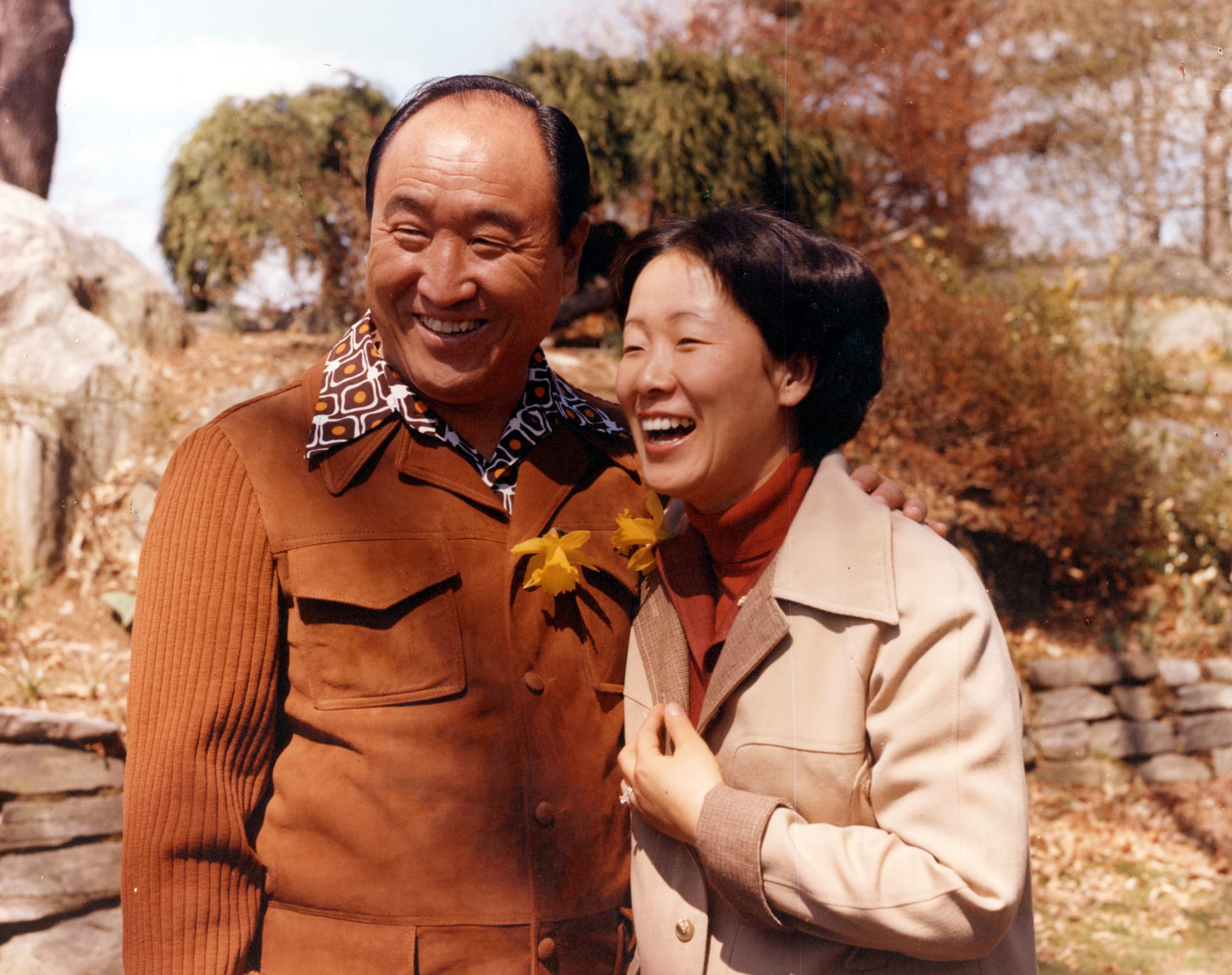
Rahab
The book of the genealogy of Jesus Christ, the son of David, the son of Abraham. Abraham was the father of Isaac, and Isaac the father of Jacob, and Jacob the father of Judah and his brothers, and Judah the father of Perez and Zerah by Tamar, and Perez the father of Hezron, and Hezron the father of Ram, and Ram the father of Amminadab, and Amminadab the father of Nahshon, and Nahshon the father of Salmon, and Salmon the father of Boaz by Rahab, and Boaz the father of Obed by Ruth, and Obed the father of Jesse, and Jesse the father of David the king. And David was the father of Solomon by the wife of Uriah… Matthew 1.1-6 And Joshua the son of Nun sent two men secretly from Shittim as spies, saying, “Go, view the land, especially Jericho.” And they went, and came into the house of a harlot whose name was Rahab, and lodged there. And it was told the king of Jericho, “Behold, certain men of Israel have come here tonight to search out the land.” Then the king of Jericho sent to Rahab, saying, “Bring forth the men that have come to you, who entered your house; for they have come to search out all the land.” But the woman had taken the two men and hidden them; and she said, “True, men came to me, but I did not know where they came from; and when the gate was to be closed, at dark, the men went out; where the men went I do not know; pursue them quickly, for you will overtake them.” But she had brought them up to the roof, and hid them with the stalks of flax which she had laid in order on the roof… Before they lay down, she came up to them on the roof, and said to the men, “I know that the Lord has given you the land, and that the fear of you has fallen upon us… Now then, swear to me by the Lord that as I have dealt kindly with you, you also will deal kindly with my father’s house…” Then she let them down by a rope through the window, for her house was built into the city wall. Joshua 2.1-15
Teachings of Sun Myung Moon
The genealogy of Jesus recorded in chapter one of the Gospel of Matthew lists the names Tamar and Ruth, both of whom were in the position of concubines.
It lists Solomon’s mother, Bathsheba, another concubine. It lists Rahab, who was a prostitute. These women, concubines and prostitutes, appear in the Bible as playing significant roles in the background of human history. (92:292, April 18, 1977)
Rahab appears in the Gospel of Matthew. What kind of person was she? She was a prostitute, but more than that, she helped a spy of her country’s enemy. It is realistic for a prostitute to sympathize with her country’s enemy, but she risked her life to do it.
She demonstrates that for the sake of Heaven’s will, we should risk our lives. Like Rahab, we should deny our life, our circumstances, and all the privileges our life affords. History progresses from that point of self-denial. (30:196, March 22, 1970)
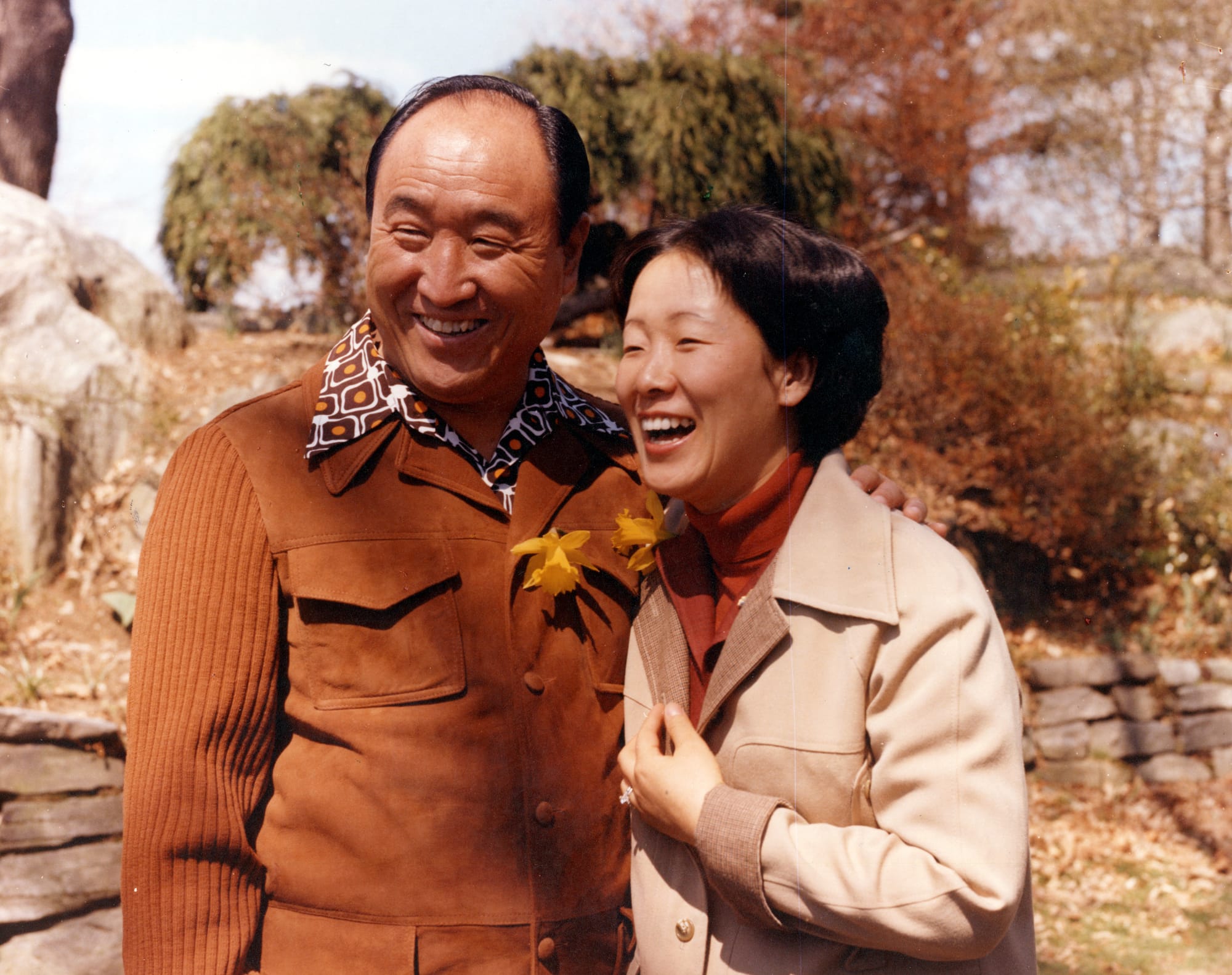
Bathsheba
It happened, late one afternoon, when David arose from his couch and was walking upon the roof of the king’s house, that he saw from the roof a woman bathing; and the woman was very beautiful. And David sent and inquired about the woman. And one said, “Is not this Bathsheba, the daughter of Eliam, the wife of Uriah the Hittite?” So David sent messengers, and took her; and she came to him, and he lay with her. (Now she was purifying herself from her uncleanness.) Then she returned to her house. And the woman conceived; and she sent and told David, “I am with child.” So David sent word to Joab, “Send me Uriah the Hittite.” And Joab sent Uriah to David… David said to Uriah, “Go down to your house, and wash your feet.” And Uriah went out of the king’s house, and there followed him a present from the king. But Uriah slept at the door of the king’s house with all the servants of his lord, and did not go down to his house. When they told David, “Uriah did not go down to his house,” David said to Uriah, “Have you not come from a journey? Why did you not go down to your house?” Uriah said to David, “The ark and Israel and Judah dwell in booths; and my lord Joab and the servants are my lord are camping in the open field; shall I then go to my house, to eat and to drink, and to lie with my wife? As you live, and as your soul lives, I will not do this thing.”… In the morning David wrote a letter to Joab, and sent it by the hand of Uriah. In the letter he wrote, “Set Uriah in the forefront of the hardest fighting, and then draw back from him, that he may be struck down, and die.” And as Joab was besieging the city, he assigned Uriah to the place where he knew there were valiant men. And the men of the city came out and fought with Joab; and some of the servants of David among the people fell. Uriah the Hittite was slain also… When the wife of Uriah heard that Uriah her husband was dead, she made lamentation for her husband. And when the mourning was over, David sent and brought her to his house, and she became his wife, and bore him a son… And the Lord struck the child that Uriah’s wife bore to David, and it became sick. David therefore besought God for the child; and David fasted, and went in and lay all night upon the ground. And the elders of his house stood beside him, to raise him from the ground; but he would not, nor did he eat food with them. On the seventh day the child died… Then David comforted his wife, Bathsheba, and went into her, and lay with her; and she bore a son, and he called his name Solomon. And the Lord loved him. 2 Samuel 11.2-27, 12.15-18, 24
King David, of blessed memory, was a great sage and recognized transmigrations. When he saw Uriah the Hittite, he knew that he was the Serpent who had seduced Eve, and when he saw Bathsheba he knew that she was Eve, and he knew that he himself was Adam. Thus, he wished to take Bathsheba from Uriah, because she was destined to be David’s mate… And the reason Nathan the prophet chastised him was because he hastened, and did not wait… for his haste caused him to go to her without performing tik-kun (restoration), for he first needed to remove from her the contamination of the Serpent, and thereafter to go to her, and he did not do so. Therefore, his first son Bathsheba died, for he was from the impurity of the Serpent, but from there on there was no Satan and no bad effect.31 Sefer Peli’ah (Judaism)
Teachings of Sun Myung Moon
Bathsheba had cause to hate King David. But if she had, she could not have become the mother of King Solomon.
She could have hated King David for intentionally sending her husband Uriah to the battlefield to be killed and taking her as his wife, but she accepted it as her fate, or rather as Heaven’s will. In other words, she believed that King David’s act was not done out of ill intent, but rather to fulfill a greater purpose of God.
Further, Bathsheba was a patriot who prayed for her nation to be victorious, even if her husband Uriah might have to make the ultimate sacrifice. Bathsheba thought that although her husband had been killed, it was honorable for him to die as a loyal subject.
Moreover, it was to his honor that she accepted being offered to the king with joy. She had such a high-standard viewpoint. She thought, “It is my duty to my husband that I offer myself to the king with loyalty and devotion.”
With this attitude, she married King David. On this foundation, she could give birth to King Solomon. (40:97, January 24, 1971)
King Solomon’s mother was Bathsheba. She had been the wife of Uriah, but King David stole her from him. How, then, could the child from that union become King Solomon? Bathsheba was in the position of a second wife.32
In terms of the providence to restore the positions in the Garden of Eden before the Fall, David was in the position of Adam, and Uriah was in the position of the archangel. But the position of Eve had to be restored through a woman in the position of the wife of the Archangel.
The archangel caused Eve to fall by stealing her from Adam, her original partner, and possessing her with false love. To indemnify this, David, Uriah, and Bathsheba should repeat this triangular relationship and reverse it.
The child born on the foundation of having fulfilled this condition according to the standard of the Principle would be a child of glory, blessed with Heaven’s love. That child of glory was King Solomon. (35:168, October 13, 1970)
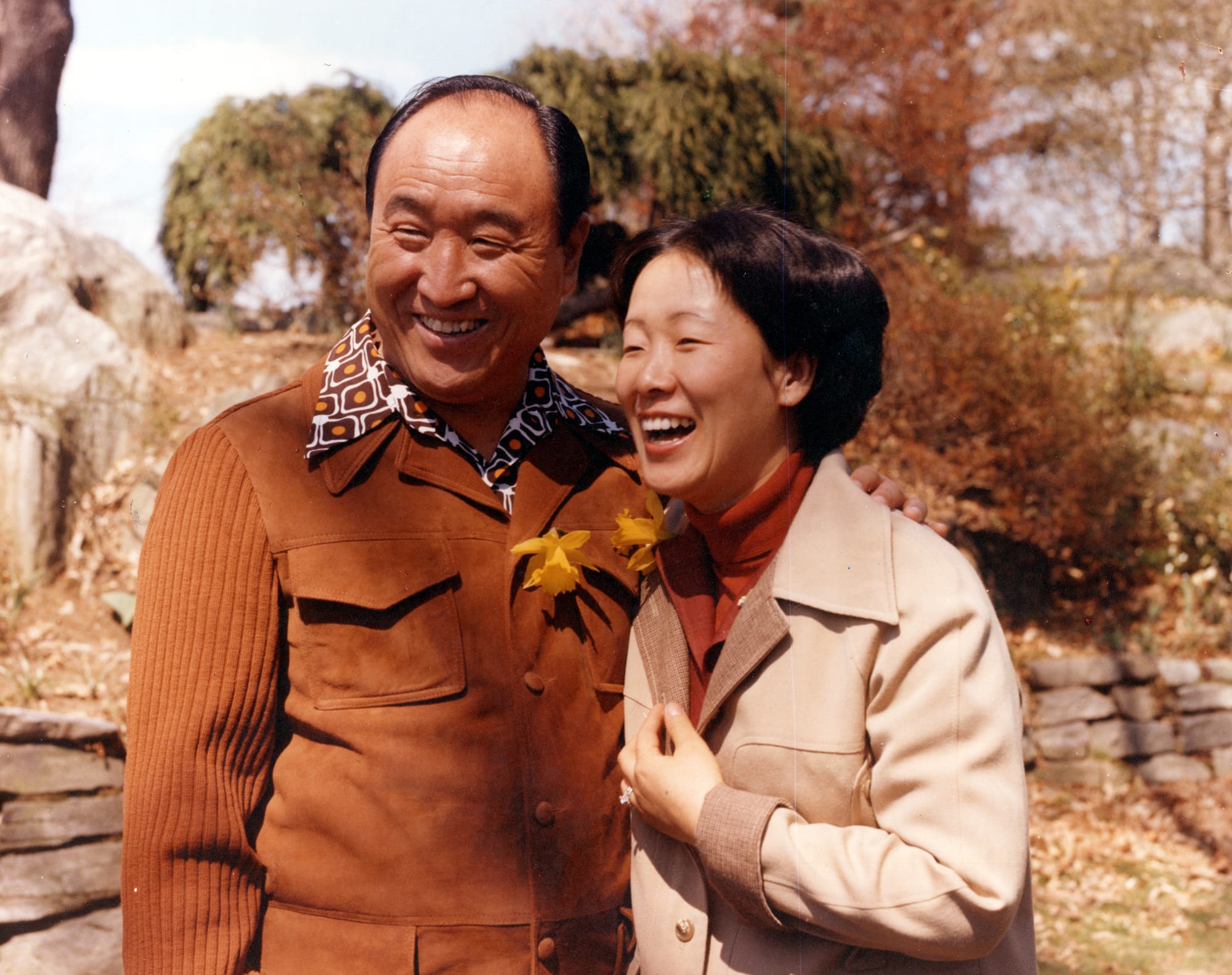
Mary
In the sixth month the angel Gabriel was sent from God to a city of Galilee named Nazareth, to a virgin betrothed to a man whose name was Joseph, of the house of David; and the virgin’s name was Mary. And he came to her and said, “Hail, O favored one, the Lord is with you!” But she was greatly troubled at the saying, and considered in her mind what sort of greeting this might be. And the angel said to her, “Do not be afraid, Mary, for you have found favor with God. And behold, you will conceive in your womb and bear a son, and you shall call his name Jesus. He will be great, and will be called the Son of the Most High; and the Lord God will give to him the throne of his father David, and he will reign over the house of Jacob for ever; and of his kingdom there will be no end.” And Mary said to the angel, “How shall this be, since I have no husband?” And the angel said to her, “The Holy Spirit will come upon you, and the power of the Most High will overshadow you; therefore the child to be born will be called holy, the Son of God. And behold, your kinswoman Elizabeth in her old age has also conceived a son; and this is the sixth month with her who was called barren. For with God nothing will be impossible.” And Mary said, “Behold, I am the handmaid of the Lord; let it be to me according to your word.” And the angel departed from her. In those days Mary arose and went with haste into the hill country, to a city of Judah, and she entered the house of Zechariah and greeted Elizabeth. And when Elizabeth heard the greeting of Mary, the babe leaped in her womb; and Elizabeth was filled with the Holy Spirit and she exclaimed with a loud cry, “Blessed are you among women, and blessed is the fruit of your womb!”… And Mary remained with her about three months, and returned to her home. Luke 1.26-42, 56
The angels said, “Mary, God gives you good tidings of a Word from him, whose name is the Messiah, Jesus, son of Mary, illustrious in the world and in the Hereafter, and one of those brought near unto God.
He will speak unto mankind in his cradle and in his manhood, and he is of the righteous.” She said, “My Lord! How can I have a child when no mortal has touched me?” He said, “So. God creates what He will. If He decrees a thing, He says unto it only, ‘Be!’ And it is…” Qur’an 3.45-47
Mary, the daughter of Imran, who preserved her chastity; We breathed some of Our spirit into it, and she acknowledged her Lord’s words and books. She was so prayerful! Qur’an 66.12
Teachings of Sun Myung Moon
Mary was a revolutionary woman in faith who could follow God’s Will. Because the Human Fall came through the archangel Lucifer, another archangel, Gabriel, should assist Mary by bringing her God’s revelation. Eve believed the words of the archangel and fell.
This time, Mary should believe the archangel’s message from God and follow it. This is for restoration through indemnity. Therefore, Mary risked her life, completely believing what the angel told her: “Behold, you will conceive in your womb and bear a son, and you shall call his name Jesus… the child to be born will be called holy, the Son of God.” (Luke 1.31, 35)
Mary’s situation paralleled that of Eve in the Garden of Eden before the Fall. Mary and Joseph were engaged but not yet married; Adam and Eve were also in an engagement period as they were growing up—they were brother and sister, but someday to would marry.
An angel induced Eve to commit the Fall; now another angel brought Mary to God for the fulfillment of His Will. In these respects, their situations were precisely parallel. Since human beings have inherited the fallen act as a normal tradition, the same act should be repeated for God in the course of restoration.
Therefore, Mary deceived her husband-to-be and her father. Do you think Mary could discuss with her father or Joseph how she had conceived her baby?
She was risking her life because, in those days, an adulterous woman would be stoned to death. Mary conceived Jesus after inheriting the victorious foundation of Rebecca and Tamar.
Through these three women, all the conditions were fulfilled for the indelibility of the Son of God. Therefore, Satan could not make any accusation against the birth of the child. That is why, even in Mary’s womb, Jesus was already the only begotten Son of God. (92:289-90, April 18, 1977)
Mary, who was engaged to Joseph, received from the archangel Gabriel the surprising message that the Messiah would be born through her. (Luke 1.31) In those days, if an unmarried woman became pregnant, she would be killed.
But Mary accepted the will of God with absolute faith, saying, “Behold, I am the handmaid of the Lord; let it be to me according to your word.” (Luke 1.38) Mary consulted with the priest Zechariah, who was her relative and was highly respected.
Zechariah’s wife, Elizabeth, with the help of God, was pregnant with John the Baptist. She said to Mary, “Blessed are you among women and blessed is the fruit of your womb. Why is this granted to me that the mother of my Lord should come to me?” (Luke 1.42 43)
With these words, she testified to the coming birth of Jesus. In this way, God let Mary, Zechariah, and Elizabeth know about the birth of the Messiah before anyone else. All of them had the crucial mission of following the will of God and serving Jesus.
Zechariah’s family let Mary stay in their house. Jesus was conceived in the house of Zechariah. Elizabeth and Mary were cousins on their mothers’ side. But according to God’s providence, they were considered sisters, with Elizabeth as the elder (Cain) and Mary as the younger (Abel). Mary received Elizabeth’s help in the presence of Zechariah.
Through this cooperation, Zechariah’s family, on the national level, indemnified the lack of unity between Leah and Rachel in Jacob’s family.
This allowed Jesus to be conceived. For the first time in history, there could be born on earth, free of satanic accusation and through a prepared womb, the seed of the Son of God—the seed of the True Father.
In this way, the only begotten Son of God, the owner of the first love of God, was born. Mary had to achieve something that could not be understood by common sense, nor easily tolerated under the law of those times.
Mary, Elizabeth, and Zechariah had been spiritually moved. They were to follow the revelation that came from Go, and unconditionally believe that it was the will and desire of God. (277:206-07, April 16, 1996)
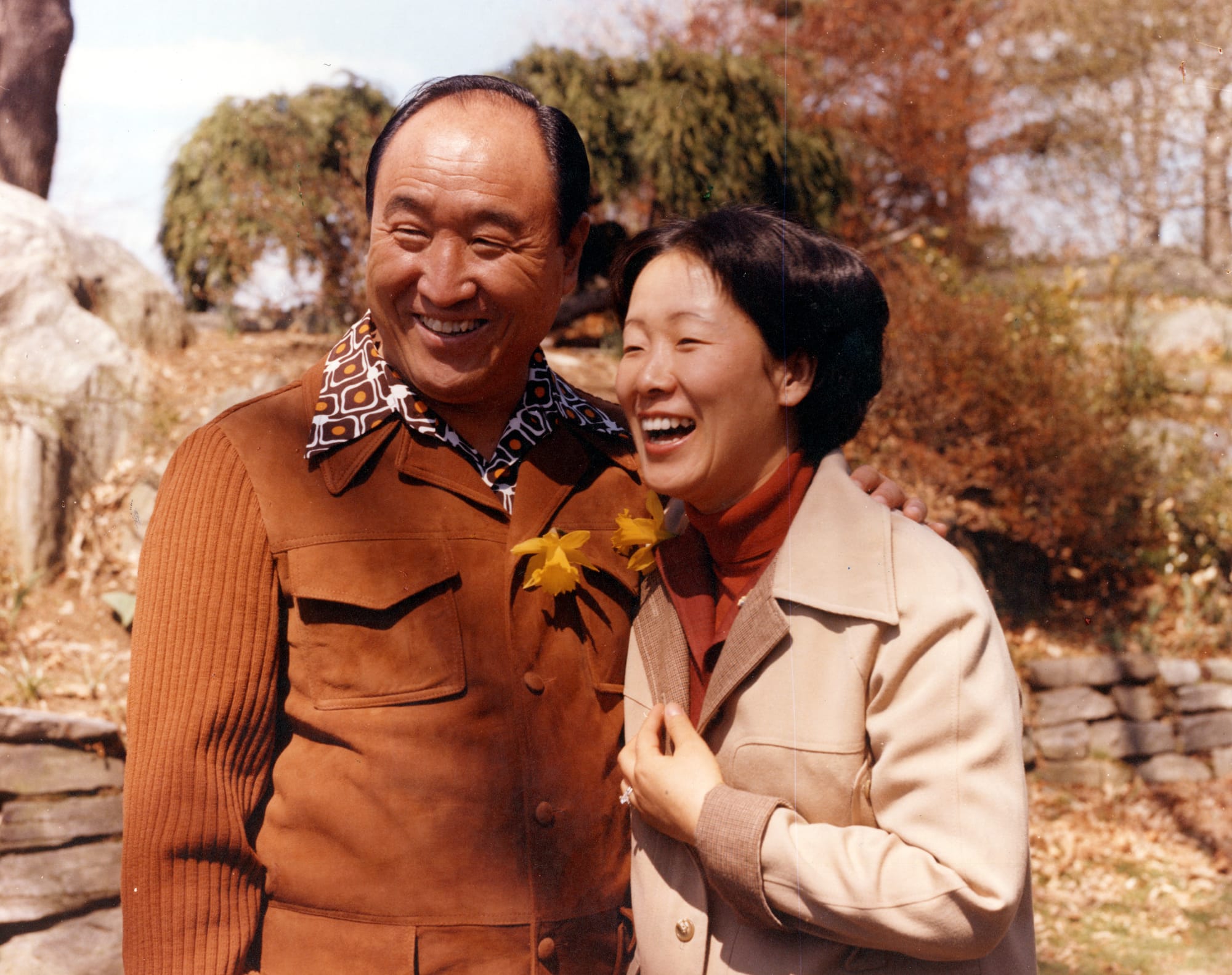
Mary Magdalene
Six days before the Passover, Jesus came to Bethany, where Lazarus was, whom Jesus had raised from the dead. There they made him a supper; Martha served, and Lazarus was one of those at table with him.
Mary took a pound of costly ointment of pure nard and anointed the feet of Jesus and wiped his feet with her hair; and the house was filled with the fragrance of the ointment. But Judas Iscariot, one of his disciples (he who was to betray him), said, “Why was this ointment not sold for three hundred denarii and given to the poor?” John 12.1-4
But Jesus said, “Let her alone; why do you trouble her? She has done a beautiful thing to me. For you always have the poor with you, and whenever you will, you can do good to them; but you will not always have me.
She has done what she could; she has anointed my body beforehand for burying. And truly, I say to you, wherever the gospel is preached in the whole world, what she has done will be told in memory of her.” Mark 14.6-9
Now on the first day of the week Mary Magdalene came to the tomb early, while it was still dark, and saw that the stone had been taken away from the tomb. So she ran, and went to Simon Peter and the other disciple, the one whom Jesus loved, and said to them, “They have taken the Lord out of the tomb, and we do not know where they have laid him.”…
Then the disciples went back to their homes. But Mary stood weeping outside the tomb, and as she wept she stooped to look into the tomb; and she saw two angels in white, sitting where the body of Jesus had lain, one at the head and one at the feet. They said to her, “Woman, why are you weeping?”
She said to them, “Because they have taken away my Lord, and I do not know where they have laid him.” Saying this, she turned round and saw Jesus standing, but she did not know that it was Jesus.
Jesus said to her, “Woman, why are you weeping? Whom do you seek?” Supposing him to be the gardener, she said to him, “Sir, if you have carried him away, tell me where you have laid him, and I will take him away.” Jesus said to her, “Mary.”
She turned and said to him in Hebrew, Rabboni!” (which means Teacher). Jesus said to her, “Do not hold me, for I have not yet ascended to the Father; but go to my brethren and say to them, I am ascending to my Father and your Father, to my God and your God.”
Mary Magdalene went and said to the disciples, “I have seen the Lord”; and she told them that he had said these things to her. John 20.1-18
Teachings of Sun Myung Moon
Why does the name of Mary Magdalene endure in Christianity? Why is her name praised throughout the generations?
It is because Jesus wanted her name to be known. During Jesus’ lifetime, who could understand her behavior? She was ridiculed as a woman of a low background. When she poured perfumed oil worth 300 denarii on his feet, all the disciples mocked her, and Judas Iscariot protested her actions.
Yet Jesus declared that her name would be remembered wherever the Gospel is preached. He said so because her offering to Jesus at that hour was greater than the devotion of his disciples or anyone else. Herr's act of devotion to Jesus matched Jesus’ devotion to God. (4:107, March 16, 1958)
When Jesus was petitioning Heaven in the Garden of Gethsemane, his three disciples fell asleep; they did not listen to the voice of his prayer. However, Mary Magdalene recognized the divine value of Jesus.
She washed his feet with her hair after pouring perfumed oil on his feet. In this manner, she assured the glory of the Lord Jesus at his resurrection.
At the time, his disciples ridiculed her behavior and attempted to stop her. Christians do not know that Jesus was deeply grieved at their attitude, a grievance that remains to this day. Jesus Christ lived in sorrow, walking a lonely path that no one recognized.
Only Mary Magdalene comforted him, empathizing with Jesus’ divine heart for the past, the present, and the future. For this reason, he blessed her with joyful grace and elevated her to stand in the forefront of God’s will. (2:212, May 26, 1957)
Mary Magdalene appeared insignificant compared to the disciples, yet when Jesus passed away, she was the one who visited his tomb. Mary loved Jesus—who was still a bachelor—more than anyone else.
She followed him everywhere, sharing the ridicule, the cursing, and the ostracism he suffered. Because she longed for him so earnestly, when Jesus was resurrected, he appeared to her first.
Mary Magdalene is a role model for Christians throughout the world, showing the path that they should walk in the latter days. What was the life of Mary Magdalene?
She so loved Jesus that she forgot about what to eat or what to wear. She lived only for him, with an unchanging heart. She was not attached to her life; she did not think about saving face. Her faith was exemplary among all Jesus’ disciples. Christians in the Last Days should have the faith of Mary Magdalene.
If you can have the same heart as Mary Magdalene, you would have the tears God shed over the 6000 years of the providence welling up in your eyes, and you would recognize how much you are indebted to Heaven. (4:258-59, June 29, 1958)
When Jesus was resurrected after the cross, he turned Mary Magdalene away when she tried to embrace him. He was not in a position to say, “Mary, my Bride, let us go to the Father together.”
Jesus had worked hard to restore the Bride that Heaven had sought for 2,000 years, looking forward to the day when he could embrace his Bride.
It was the Father’s will that Jesus come before Him, rejoicing with the Bride, receive God’s marriage Blessing and become the True Parents… but Jesus departed this world without receiving the Blessing by which he could restore the position of humanity’s true ancestor. This is the sorrow of both God and Jesus. (5:187, January 18, 1959)
Among the disciples, Jesus loved Judas Iscariot in particular. He made Judas his object partner, through whom to restore God’s primary Will. Jesus intended to use him to erect a woman in the position of Eve, but to do this, they should fulfill the roles of the personages involved in the Fall.
Specifically, God’s Will required that Jesus set up Judas’s wife as the new Eve. This woman was Mary Magdalene. She had been Judas’ lover, but now, as a disciple, she was obedient to Jesus.
So, just as Satan had taken Eve from Adam, Jesus [as Adam] planned to take Judas’s woman to be the new Eve. That way, the three of them would fulfill God’s will according to the Principle. Accordingly, Jesus first acknowledged that Mary Magdalene belonged to Judas Iscariot. Then Jesus commenced the providence by choosing her to be his Eve.
While this fundamental providence was going on, in the meantime, Satan was fully on the attack, mobilizing the Pharisees and scribes against Jesus.
Regardless, had Judas Iscariot trusted, obobeyedand attended Jeto sus in this matter, they would have established the foundation for the fulfillment of God’s Will.
But Judas was full of discontent and confronted Jesus. That was the beginning of his rebellion against his Teacher, which culminated when he sold out the One Man unique in all human history for a mere 30 pieces of silver. (Wolli Wonbon 242-43)
